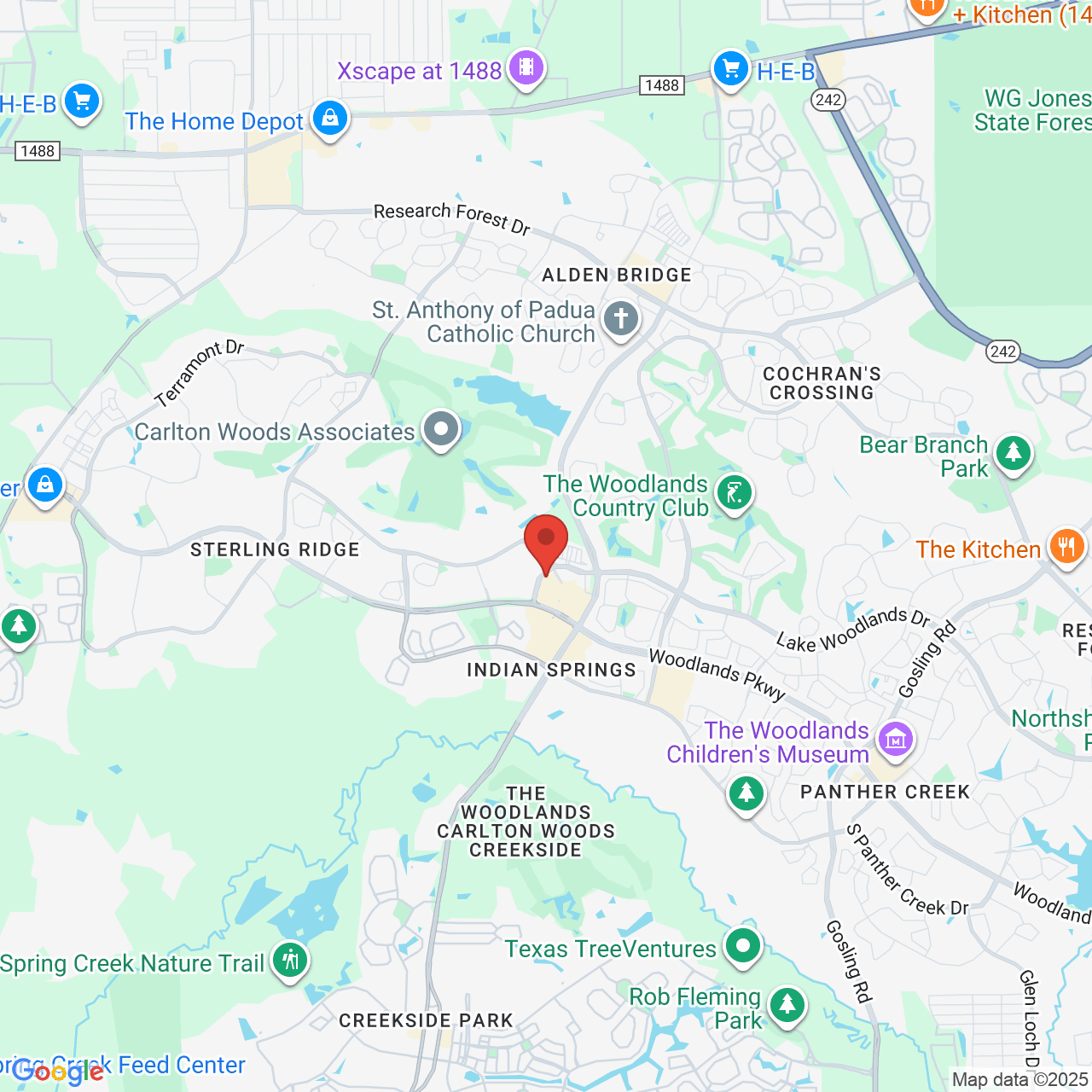TMJ Treatment in The Woodlands, TX
Lasting Relief
- Dr. Scott Young is a Las Vegas Institute–Trained Neuromuscular Expert
- 99% Estimated TMJ Treatment Success Rate
- Luxury Amenities for Your Comfort
- Comprehensive Solutions Beyond Night Guards
Dr. Young's Unique Approach To TMJ Treatment
Neuromuscular dentistry focuses on relaxing and repositioning the jaw muscles to reduce tension and joint strain. Dr. Young uses tools like TENS and jaw-tracking technology to help relieve TMJ pain, headaches, chewing difficulty, and even neck or shoulder discomfort.
Dr. Young can use his specialized training to address the root causes of your temporomandibular joint disorder, which makes it worth considering if you are dealing with persistent jaw pain or dysfunction.


Relief Starts Here
Your days of suffering from jaw pain and dysfunction can come to an end. Join the many throughout The Woodlands who have discovered that Dr. Scott Young is a leader in advanced TMJ care. He is ready to help you find the solution that gives you lasting relief. Don't wait any longer to put the agony of TMJ behind you.
"Came in with tmj issues & major migraines. After about 1 year, the headaches are gone and my jaw feels so much more relaxed! Team is always friendly and professional. Make you feel like family!" — Tina, 5-Star Review
Call us today to request a consultation:
Payment Options
TMJ treatment costs vary depending on your diagnosis, the severity of your condition, and the type of treatment recommended. Our dentist in The Woodlands, TX, believes cost should never stand in the way of your comfort and health.
While our practice is not in-network with dental insurance providers, many patients are able to receive partial reimbursement from their insurance carrier. Our team is happy to provide the documentation needed to file your claim.
We also offer flexible financing options through trusted third-party lenders CareCredit®, Cherry, and LendingClub. This allows you to begin treatment now and make affordable monthly payments over time. Our patient care team can review all options with you during your visit so you can make an informed decision.

A Patient's Journey to Relief From TMJ Pain
"For years, I dealt with significant misalignment of my teeth (cross bite and under bite) that caused severe TMD/chronic pain. This started at age 18 and continued to get worse up until I began treatment at 24 (May of 2023). Over the years, I tried orthodontics and other treatments that did not work. I felt defeated. Thankfully, after much research, I found Scott Young, DDS. I did a consult with their team who presented a solution to my issues called full mouth reconstruction.
I was VERY nervous to do this at first as it is a permanent change and an extensive process. However, after my first consult, the team made me feel extremely comfortable and confident. Their support, kindness, and patience through the process made all the difference. It took 4 months with multiple procedures, but couldn’t have been more worth it. I just had my final appointment and I am ecstatic with the results! My TMD & pain are pretty much gone (& continue to improve). Although I did this for a functional purpose (to fix my bite & TMD), the aesthetic results are OUTSTANDING.
All in all, I couldn’t be happier with my results and the way that I was treated. If you’re dealing with any functional issues like mine, or are seeking premier cosmetic work, please reach out to the team at Scott Young, DDS." — Justin, 5-Star Review

FAQ Answers to Common TMJ Questions
What causes TMJ disorder?
Common causes include teeth grinding, jaw misalignment, arthritis, or injury. Sometimes the condition develops from a combination of factors.
Will I need surgery?
Surgery is rarely needed. Our advanced, noninvasive methods have a high success rate in relieving symptoms without surgical intervention.
How soon will I feel better?
Many patients experience relief within days to weeks, while more complex cases may take longer. Our goal is to provide lasting relief.
What does Dr. Young’s LVI training mean?
It means Dr. Young has completed advanced postgraduate training at the Las Vegas Institute for Advanced Dental Studies, a leading center for neuromuscular dentistry. This education goes beyond standard dental school, focusing on how jaw muscles, joints, and teeth work together. His expertise allows him to diagnose and treat TMJ disorders with precision, using proven techniques and technology to achieve lasting comfort and function.








